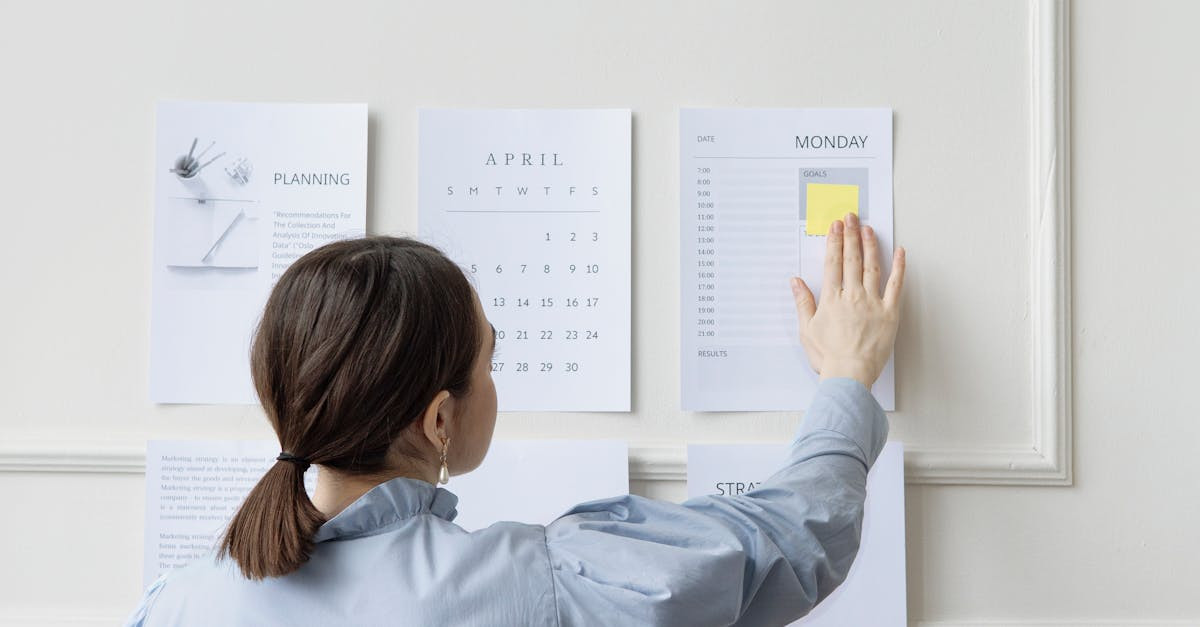Procrastination isn't laziness. It’s a behavior driven by fear, perfectionism, or feeling overwhelmed. Getting to the bottom of what’s causing your hesitation can help you address it, of course. But regardless of the cause of your mental block, here are some strategies backed by research that will help you beat procrastination.
Break Tasks Down Into Little Pieces
Big tasks or projects can feel overwhelming, making you want to avoid them entirely. Break the work into manageable chunks and focus on completing one part at a time. This will reduce the mental barrier to getting started and helps you build momentum. Even ten minutes of focused effort on a small step can build confidence and progress.
Use Time Blocks And Deadlines
Set specific time blocks for focused work, ideally 25–45 minutes with short breaks in between. This is known as the Pomodoro Technique. Committing to a defined work period helps reduce distractions and the urge to put things off. Creating personal deadlines—especially before the real ones—can increase accountability and reduce last-minute stress.
Get Rid Of Distractions
Our environments are filled with attention thieves: phones, social media, noisy surroundings. Focus in on what typically pulls you away and remove it from your workspace during work periods. Turn off notifications, block distracting websites, and let others know you’re not to be disturbed. Creating a distraction-free zone can drastically improve your focus.
Set Clear And Manageable Goals
Vague or poorly defined goals are a breeding ground for procrastination. When you're not even sure what "done" looks like, it’s hard to get down to business. Write down specific, achievable goals for what you want to get done in a given day or time-block. Clear objectives will give you direction and make it easier to track your progress. This will help your motivation and efficiency.
Reward Yourself For Progress
Positive reinforcement is the driver of consistency. After getting a difficult task done or hitting a milestone, reward yourself with something you enjoy, like a walk, a snack, or a short break. Small rewards train your brain to associate productivity with good times, making it even more likely that you'll stay on track in the future.
Forgive Past Delays
Beating yourself up for past procrastination just leads to guilt and avoidance. Admit that you’re human and that setbacks happen. Instead of ruminating on wasted time that you can’t get back, focus your thoughts on what you can do now. Forgiving your past mistakes helps you stay motivated rather than immobilized by perfectionism or regret.
Visualize The Benefits Of Finishing
Procrastination often fixates on short-term discomfort. Shift your focus by imagining the relief and satisfaction you’ll feel once the task is done. Visualizing the positive outcome—less stress, more free time, a sense of accomplishment—can help you overcome inertia and take action with more purpose.
Make Accountability A Habit
Tell someone your goals. Share what you plan to accomplish and when. Accountability partners—whether friends, coworkers, or apps—can provide the nudge you need to get started. Knowing someone else is watching your progress can motivate you to follow through, especially when your internal drive is low.
Perfectionism-Free Zone
Waiting for the perfect moment to magically fall into place will just slow down your progress even more. Instead, start wherever you are, with what you have. Accept that your first attempt might be messy, but that’s part of the process. Action breeds momentum. Taking that imperfect first step could be the one thing that opens the floodgates unlocking the motivation you were looking for.
The Journey Starts With The First Step
Now that you’ve had a chance to absorb the strategies we’ve laid out above, it’s time to boldly seize the moment and swing into action! Once you’re in motion, you’ll begin to see success take shape, and leave false starts and procrastination in the past.
You May Also Like:
Lifestyle Changes To Improve Your Anxiety
Manifestation Is Trendy, But Does It Work?












